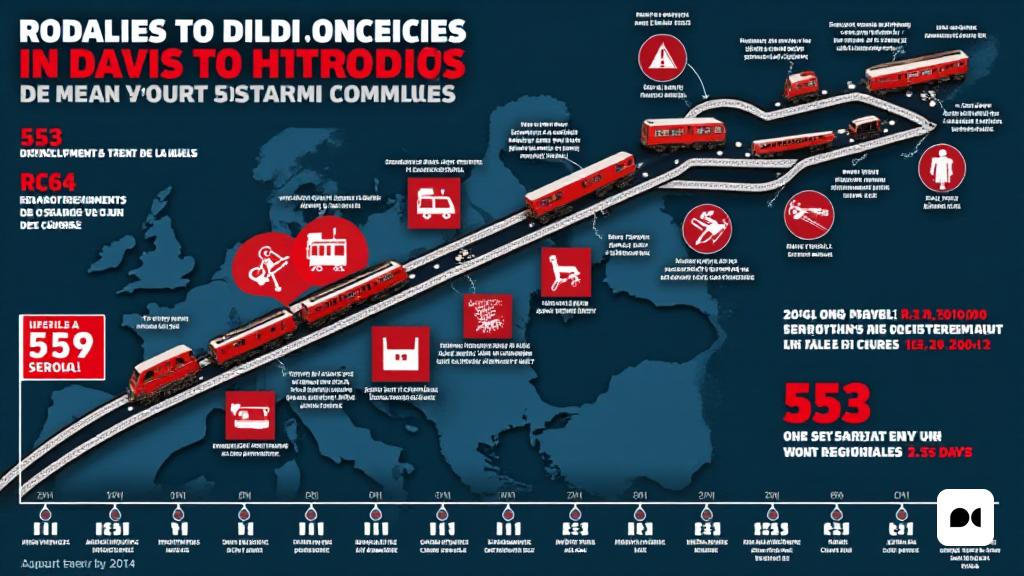A study of failures in the commuter and regional network
Between January 2021 and August 2024, the commuter and regional network experienced a total of 553 significant incidents, an average that results in a failure every 2.5 days. This information, obtained from a parliamentary consultation made by Together, reveals the great impact that these incidents have had on travelers.
Type of incidents and their impact
Incidents that affected more than 10,000 or more than 1,000 regional commuter users include mechanical breakdowns, collisions, track obstacles, copper cable robberies and lack of staff. Surprisingly, half of these incidents were attributed to infrastructure problems or trains.
Lines most affected
Among the various affected lines, the R15 stands out with a total of 369 days of altered service. These data show the urgent need for a thorough review of the railway system.
Review of the causers
Analyzing the data provided by the Department of Territory, it has been observed that incidents have occurred for a number of reasons. Failures in signaling, interruptions in the service, and extreme situations such as the fire at the Adif facilities in Gavà in May 2023, have been decisive in the interruption of the service.
Significant incidents
Some notable incidents include copper theft on May 12, 2024, coinciding with Parliamentary elections, and a derailment in Sitges in September 2022. In addition, temporary speed limitations have caused significant disadvantages, with a 35-day record of restrictions on the Vila-seca fork between April and June 2022.
The impact of fires and strikes
The fire in Gavà’s signal box in May 2023 was another incident that, despite being counted as a single incidence, had a devastating effect on the service. This event resulted in significant delays for twenty days on southern and southern R2 lines.
Final reflections on system reliability
With 553 serious incidents in a period of 1,339 days, the situation of the railway service presents a considerable challenge for the authorities. It is essential to implement measures that improve the reliability and safety of rail transport to ensure a more fluid and efficient travel experience for all users.

